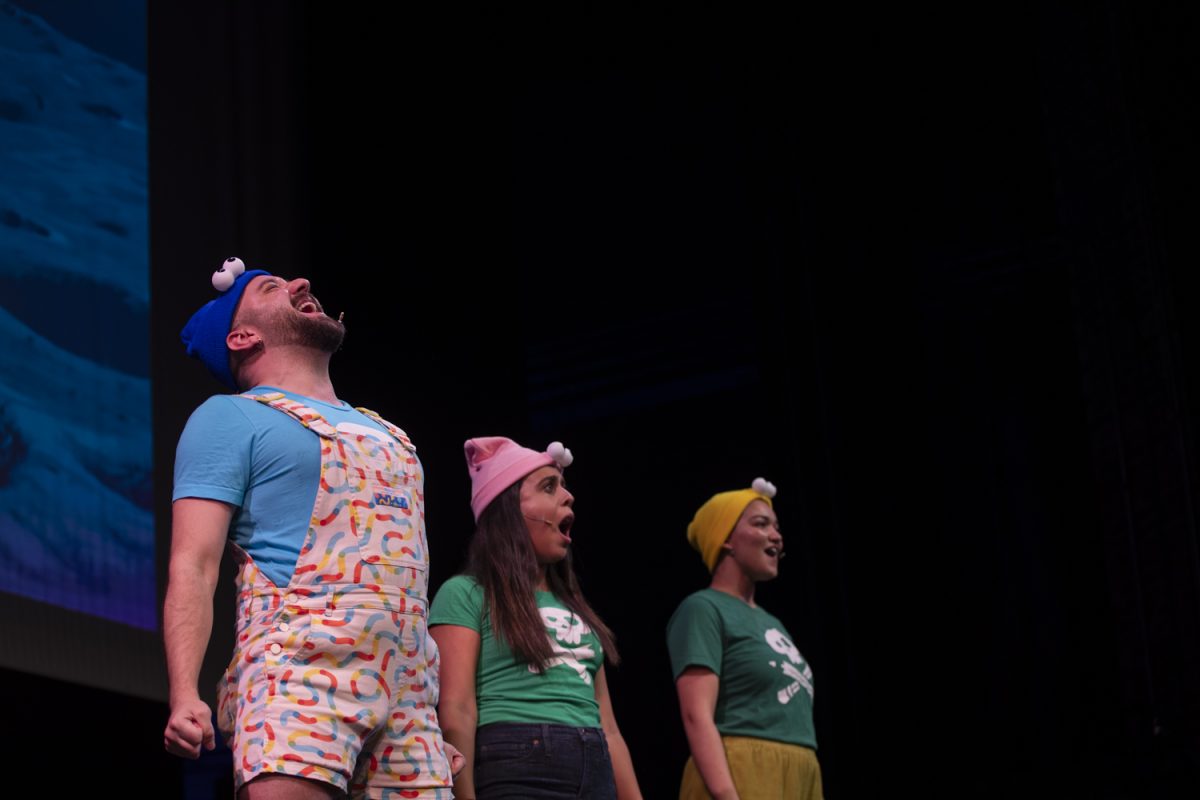Eli Clare reads from the book in his quaking hands, and the constant tremors seem to disappear.
Listeners are lost in the cadence of his voice as beautiful imagery pours from his mouth.
"My writing helps me answer questions that I have," he said. "My best writing starts with a question that I don’t have an answer for, and I write myself toward an answer."
The transgender activist was born with cerebral palsy, and he deals with issues of both the LGBT community, the disabled community, other marginalized communities, and the ways in which they intersect in his work.
"I was really impressed with the depth and breadth of topics he is able to weave into his writing," said UI social work development specialist Jefri Palermo. "He is amazing at being able to provide those linkages among disability, queer activism, and transgenderism."
The writer, speaker, activist, and teacher will bring his message to Iowa City through two events today: the public workshop "At the Intersections of Queerness & Disability" at 2 p.m. in the Iowa City Public Library, 123 S. Linn St., and a performance and reading, "Gawking, Gaping, Staring," at 7 p.m., in the Old Capitol Senate Chamber. Admission is free for both events.
Writer, speaker, activist, teacher
Clare first became interested in becoming an activist while studying women’s studies at Mills College in California, where he became interested in issues of sexism, bigotry, poverty, and sexual orientation.
"My activism was about doing the right thing, and doing the thing that just made sense," he said.
The in-demand speaker conducts anywhere from 25 to 50 presentations a year on campuses across the country. At these events, he said, he wants his work to support the struggles of marginalized cultures.
"I want to meet people where they are, wherever that is, challenge them in some way, and support the way they live in the world," he said. "I want my work to support resistance to systems of oppression — homophobia, trans phobia, ‘able-ism,’ sexism, racism."
Gawking, Gaping, Staring
The work Clare will present in "Gawking, Gaping, Staring" at the University of Iowa deals with how different systems of oppression steal the bodies of people who face judgment. He will use examples focusing on overweight people, people of color, disabled people, LGBT people, and the ways these communities relate to reclaiming their bodies.
He also draws on his personal experiences dealing with "able-ism" and transgender and homophobia for the presentation, citing examples of people treating him like a child, patronizing him, and being violent toward him.
"I hope people will come away from that presentation with some understanding of how our bodies are affected by systems of oppression and how we can resist those impacts," he said.
The event was made possible by a partnership of TransCollaborations, a student and community-based group, and the UI Council on Disability Awareness.
A co-organizer of TransCollaborations, stef shuster, said Clare’s work can also relate to more global issues, including how our society has a beauty-based culture dictating the ways our bodies should look.
"The ideas that he presents can be thought about, imagined, and conceived in applying to a lot of different social-justice issues," shuster said.
Carly Armour, a student-disability adviser at the UI Student Disability Services, said she hopes Clare’s message resonates with the audience members and inspires them so they realize that they can make a difference and feel a sense of community.
"I hope they will walk away with a story that has left a footprint in their mind so that the future will contain less ‘gawking’ and more acceptance for everyone," she said.
Shuster said the nature of Clare’s work pushed many different organizations on campus to join to make the event possible.
"I’ve been really appreciative of the fact that this event and the planning of this event really required a lot of different groups on campus to come together and collaborate in ways that we really haven’t before," shuster said.
Clare said he particularly enjoys leading workshops that come out of this type of collaboration.
"I really like that dialogue between communities and between different kinds of people," he said. "What do these ideas and this information mean to you? How does it fit into your world? How does it affect you as an individual?"
Attitudes
Another of Clare’s missions through writing and activism is to change the longstanding negative attitudes in the United States toward disabled and LGBT groups.
"Both groups of people have experienced high levels of invisibility in the past," he said. "It is changing slowly but importantly for both groups of people."
He encourages education, marching, and going door to door for change as well as electing politicians who understand these issues.
"I believe there needs to be a strategy to change the attitudes and to create a world in which everyone experiences liberation," Clare said. "We need a multitude of different strategies and a multitude of people working on those strategies."
In the Iowa City community, shuster, who has been a activist here for five years, said people are mostly open to the transgender community, but there is not a deep level of cultural competency.
"There’s a general desire from faculty, staff, students, and community members to learn more about the trans community, but they just have trouble knowing where to start in their own education process," shuster said.
Zeke Swim, a UI sophomore sociology and psychology major and a member of TransCollaborations, said he believes people are becoming more aware of LGBTQ issues but still don’t fully understand them.
"I think that people like to think they understand a culture or community because they saw a TV show, or they read a book, but there is so much more to it than that," he said.
Armour said she believes that people’s disability awareness is increasing, but there is still more to be done.
"We still need an additional change of not only meeting with the Americans with Disabilities Act basics but also going above and beyond by being proactive instead of reactive," she said.
As for Clare’s message, he said most of the people who hear him speak are excited about the ideas he presents.
"People have said to me that they get motivated to make changes in the world," he said. "It’s not all positive, but I would say that the positive has outweighed the negative by a lot for me."






